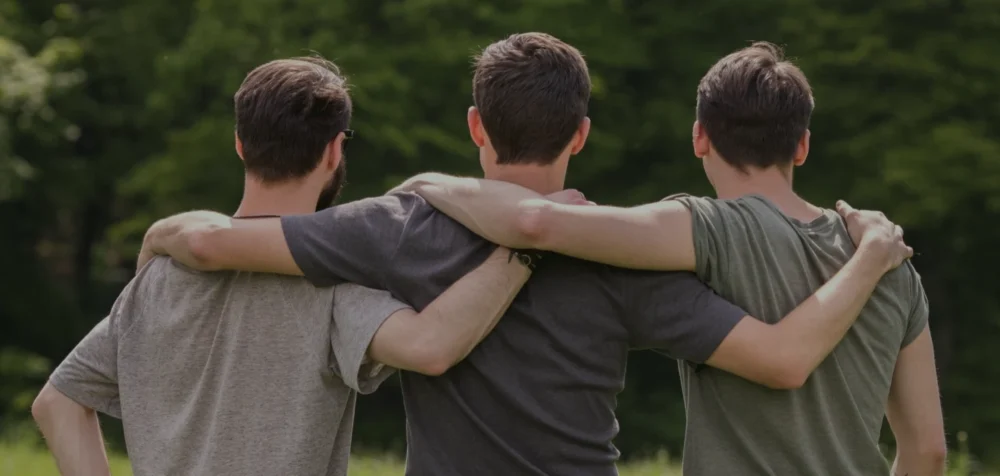
Self-care strategies, such as following the HALT acronym (Hungry, Angry, Lonely, Tired), can help individuals maintain a balanced state. Addressing these high-risk conditions is essential for preventing relapse. These types of relapse triggers are related to your environment — people, places, and objects physically around you that can spark memories of substance abuse. Encountering these triggers can be unavoidable, but by identifying them early, you can know what to expect. At this point, individuals that are in recovery from substance abuse, are experiencing feelings, both positive and negative, that can be precursors to repeated substance abuse.

Recognizing Relapse Triggers to Avoid Risky Situations
The presence of substances in these settings can make the temptation to use them stronger. Excessive stress is another critical factor that overwhelms individuals in recovery, making them more likely to turn to substances in search of relief. Additionally, personal or professional setbacks present a considerable emotional challenge, thus increasing vulnerability to relapse. A relapse is a return to drinking or drug use after attempts have previously been made to stop. Before getting to a full-blown relapse, however, a person may experience a lapse, described as the initial use of a substance after a period of recovery.4 The late addiction researcher G. Alan Marlatt, Ph.D., referred to a lapse as an abstinence violation.
Moving Past Addiction at The Dawn
Other triggers may include seeing people who use drugs, being in certain places, or even certain smells or sounds. Awareness of potential triggers and reaching out to your support system when needed can help overcome the challenges posed by reminders of past use. By staying vigilant and seeking help when necessary, you can continue your recovery journey and avoid the pitfalls of relapse.

Can Addictions Be Passed Down?
Relapse prevention focuses on building the awareness necessary to recognize the early stages of relapse. It also provides the skills to change your behavior and avoid misusing substances again. Whether you or a loved one are experiencing challenges controlling their addictive behaviors, the road toward rebuilding self-control can be overwhelming. It may seem obvious to point out that drug and alcohol cravings can trigger a relapse, but it is worth discussing so that you can develop a plan for dealing with these triggers. Being able to identify triggers and implement healthy ways to manage them will be critical skills for your recovery journey. It is common for people who struggle with addiction to relapse at least once during recovery.

Some people arrange a tight network of friends to call on in an emergency, such as when they are experiencing cravings. Since cravings do not last forever, engaging in conversation about the feelings as they occur with someone who understands their nature can help a person ride out the craving. People can relapse when things are going well if they become overconfident in their ability to manage every kind of situation that can trigger even a momentary desire to use. Or they may be caught by surprise in a situation where others around them are using and not have immediate recourse to recovery support.
What to Expect During a Drug Detox Program
Take breaks and practice relaxation techniques when feeling overwhelmed. A person can find alternative routes to avoid high-risk places, such as places where they used to meet their dealers or bars where they used to binge drink. Remember, reaching out for help and support is vital if you ever feel overwhelmed or struggling. Long-term sobriety is possible and starts with taking that first step. Setting up a system to reach out if they sense you may be heading toward a relapse might also be helpful. This way, you can ensure that someone will be there to remind you of the benefits of sobriety and provide support.
- Once mental relapse has occurred, it usually does not take very long to progress to the physical relapse stage.
- It also gives families insight into various relapse triggers, and it teaches them what to look out for during the first few months of sobriety.
- You’re walking through the grocery store and bump into an old drinking buddy who invites you to the bar for a couple of beers.
- Therapists, counselors, and treatment programs can provide additional support and resources to help you stay on track.
- Social support plays a vital role in recovery, especially for individuals grappling with substance use disorders (SUDs).
Some relapses start with lapses that become more prolonged or frequent until the individual returns to uncontrolled substance use. Focusing on emotional wellness each day reduces restlessness, irritability, and discontent, which https://ecosoberhouse.com/article/the-cycle-of-addiction-and-how-to-break-it/ can build up over time and lead to relapse. You may find yourself in situations where you begin romanitcising or glamourising your past substance use in conversation, or creating a more positive narrative about it in your own mind. This is a serious warning sign that should be raised with an addiction specialist, as it is driven by old patterns of thinking that were dominant during your addiction.

A trigger can also arise from the desire to celebrate your accomplishments. You might think that just one drink with friends will be alright, but this could result in a full relapse. Being hungry can make us fatigued and moody, contributing to irrational types of relapse triggers behaviours or outbursts. This state loosens your grip on recovery, making it easier for relapse to occur. Luckily, the solution is pretty straightforward – making sure that you have quality, high-energy snacks with you throughout the day to stave off hunger, and planning meals that are healthy and nourishing.
Deixe um comentário